In their 30-year history in the NHL, the San Jose Sharks have made a plethora of deals at the trade deadline. Like most teams, some have worked out well, and others not so much. In this article, I’ll be detailing the activity from the past five trade deadlines, then listing both the top five best and top five worst trade deadline deals.
2021 – Sharks Add Barabanov
The Sharks were particularly active at the 2021 Trade Deadline. Experiencing one of their worst seasons in team history, they didn’t exactly have a fire sale, but they were able to acquire several nice assets. The first was Alexander Barabanov from the Toronto Maple Leafs for Antti Suomela. Suomela was a force when he played in the Liiga from 2015-18. He led the league in scoring in 2017-18 with 60 points in 59 games for JYP. That offensive production never translated to the NHL. In his 51 NHL games, all with the Sharks, he has just 15 points. Since being moved to Toronto, he hasn’t appeared in an NHL game, and I’d be shocked if he did before returning to Finland.
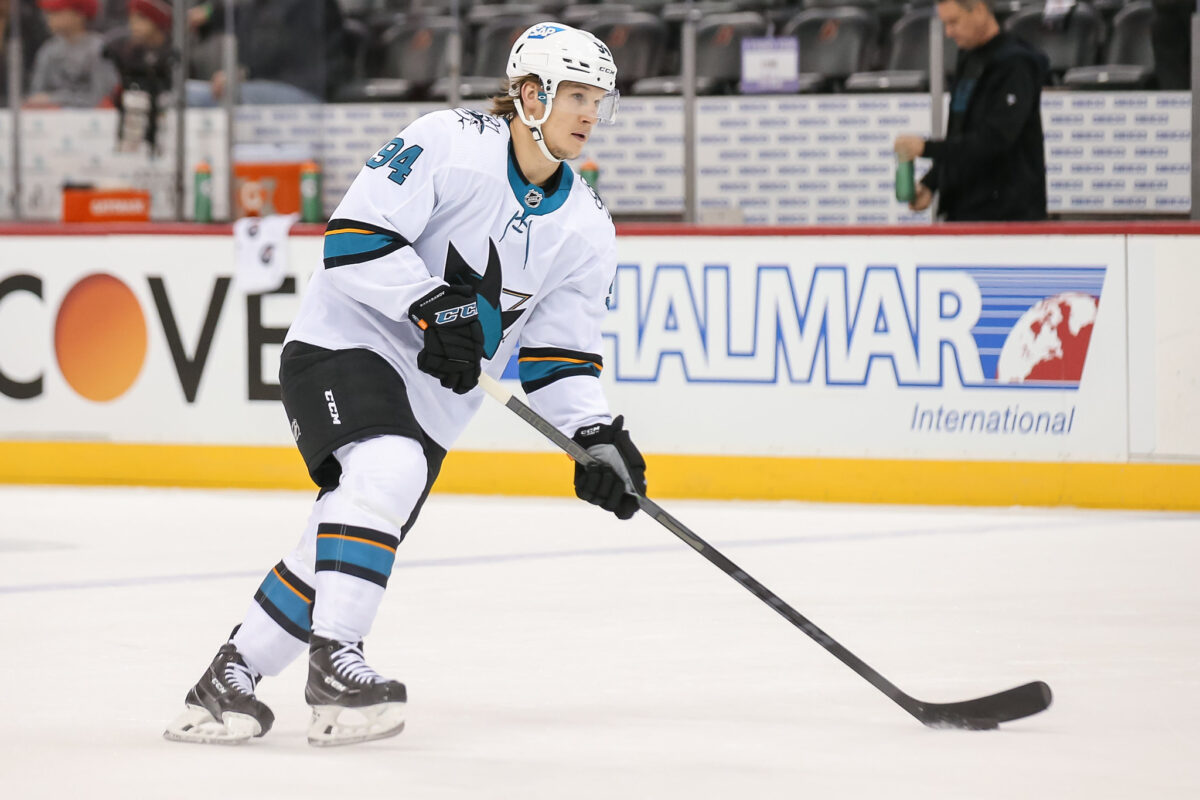
Barabanov, on the other hand, seems to have found a good fit with the Sharks. We weren’t sure if the seven points in nine games at the end of the 2020-21 season were what we should expect from the Russian winger long term. With a slightly larger sample size of 44 games, he’s put up an impressive 29 points for a 54-point pace. Not bad for a player the Sharks essentially got for free since they signed Suomela as a free agent after the 2017-18 season.
Related: Sharks’ 20 All-Time Worst Draft Picks
The other moves the Sharks made were minor, including receiving Magnus Chrona for Fredrik Claesson from the Tampa Bay Lightning, a 2022 fifth-round pick for retaining $562,500 on the deal that sent Mattias Janmark from the Chicago Blackhawks to the Vegas Golden Knights, a 2021 fourth-round pick for retaining $1.375 million on the deal that sent Nick Foligno from the Columbus Blue Jackets to the Maple Leafs, and a 2021 fifth-round pick with Greg Pateryn for Devan Dubnyk in a deal with the Colorado Avalanche.
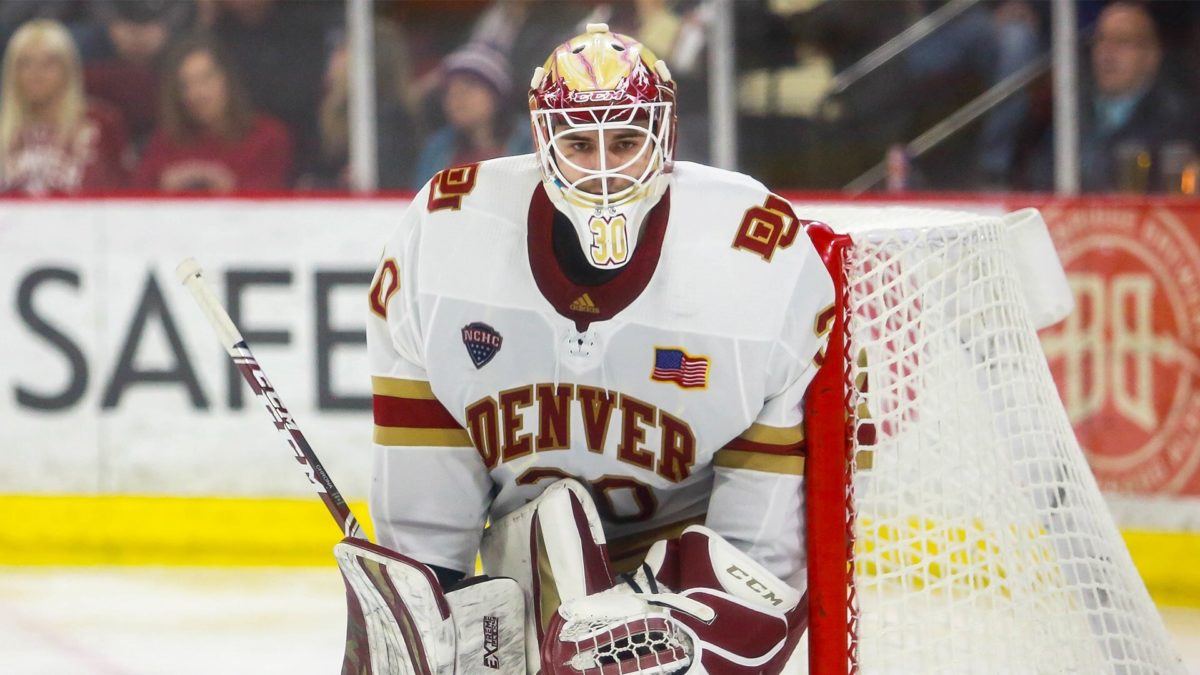
Chrona was acquired to bolster the goalie pipeline, and so far in his third season at the University of Denver, he is doing quite well with a .916 save percentage (SV%) and 2.02 goals-against average (GAA) to go with 15 wins out of 20 games. We don’t know about the 2022 pick yet, but the 2021 picks netted the Sharks Ethan Cardwell (fourth round) and Max McCue (fifth round). Neither projects to be a star, and McCue appears to be a long shot at making the NHL, but Cardwell is having a solid season in the Ontario Hockey League (OHL), so he could make it if all breaks right for him.
2020 – Sharks Acquire Draft Capital
After a trip to the Western Conference Final in 2019, the Sharks’ season was disappointing before the COVID-19 pandemic shut the league down. They seemed doomed to not make the playoffs for the first time since the 2002-03 season, and in fact, they did not qualify. As sellers at the deadline, the Sharks got a 2020 first-round pick and Anthony Greco for Barclay Goodrow from the Lighting and a 2020 second-round pick and 2021 third-round pick for Brenden Dillon with 50 percent retained salary in a deal with the Washington Capitals.
Since the Lightning won the Stanley Cup in 2019-20, their 2020 first-round pick was 31st overall, and the Sharks selected Ozzy Wiesblatt. After a brief stint with the San Jose Barracuda in 2020-21, Wiesblatt returned to the Prince Albert Raiders of the Western Hockey League (WHL), where he was pretty good in the 23 games he played. This season has been a bit of a disappointment, but the team around him doesn’t offer much support as they sit at the bottom of the East Division of the Eastern Conference in the WHL. Wiesblatt will probably never be a top-line player in the NHL, but he could provide middle-six value, not unlike the player the Sharks traded away to acquire the pick to draft him.
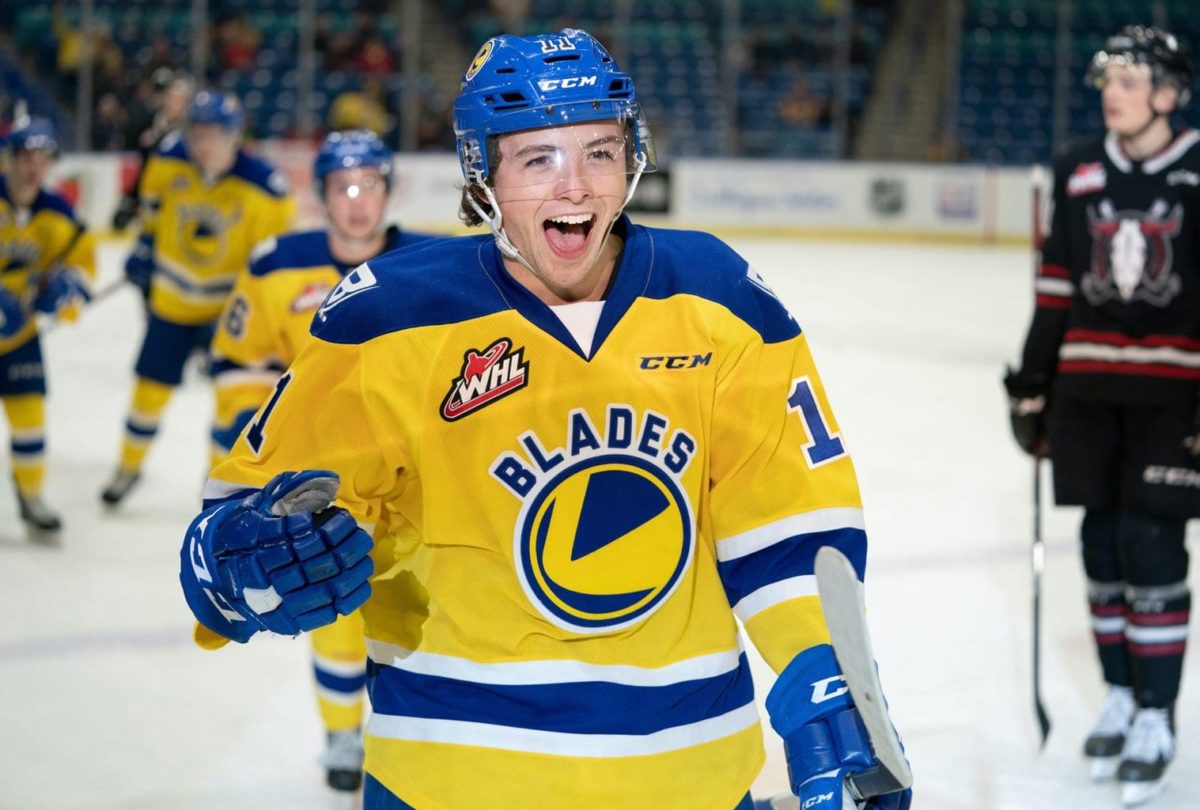
The picks the Sharks got from the Capitals turned into Tristen Robins (2020 second-round pick) and Dmitri Kostenko (2021 third-round pick). Robins’ stock has risen since his draft. He had a great, yet abbreviated, 2020-21 WHL season, and so far this season, he is approaching that elusive two-point-per-game mark. It was a bit disappointing that he didn’t make the Barracuda this season as he was eligible, but he has instead dominated the WHL. It will be fun to watch how Robins adjusts to playing in the American Hockey League (AHL) and see if he can keep his scoring prowess against professionals. He looks like the best of that great 2020 Draft class for the Sharks.
2019 – Sharks Add Nyquist
The 2018-19 Sharks were a very good team looking to add scoring depth and made a pretty big splash acquiring Gustav Nyquist with 30 percent of his salary retained by the Detroit Red Wings for a 2019 second-round pick (Albert Johansson) and 2020 third-round pick (Daemon Hunt). Nyquist fit in nicely with the Sharks as he put up 11 points in 19 regular-season games and another 11 in 20 playoff games as the Sharks came up just short of the Stanley Cup Final, bowing out in the Western Conference Final to the eventual Cup champion St. Louis Blues. What stings, even more, is Johansson is looking like he could be a top-four defender in the NHL soon and for years to come, according to his Hockey Prospecting profile.
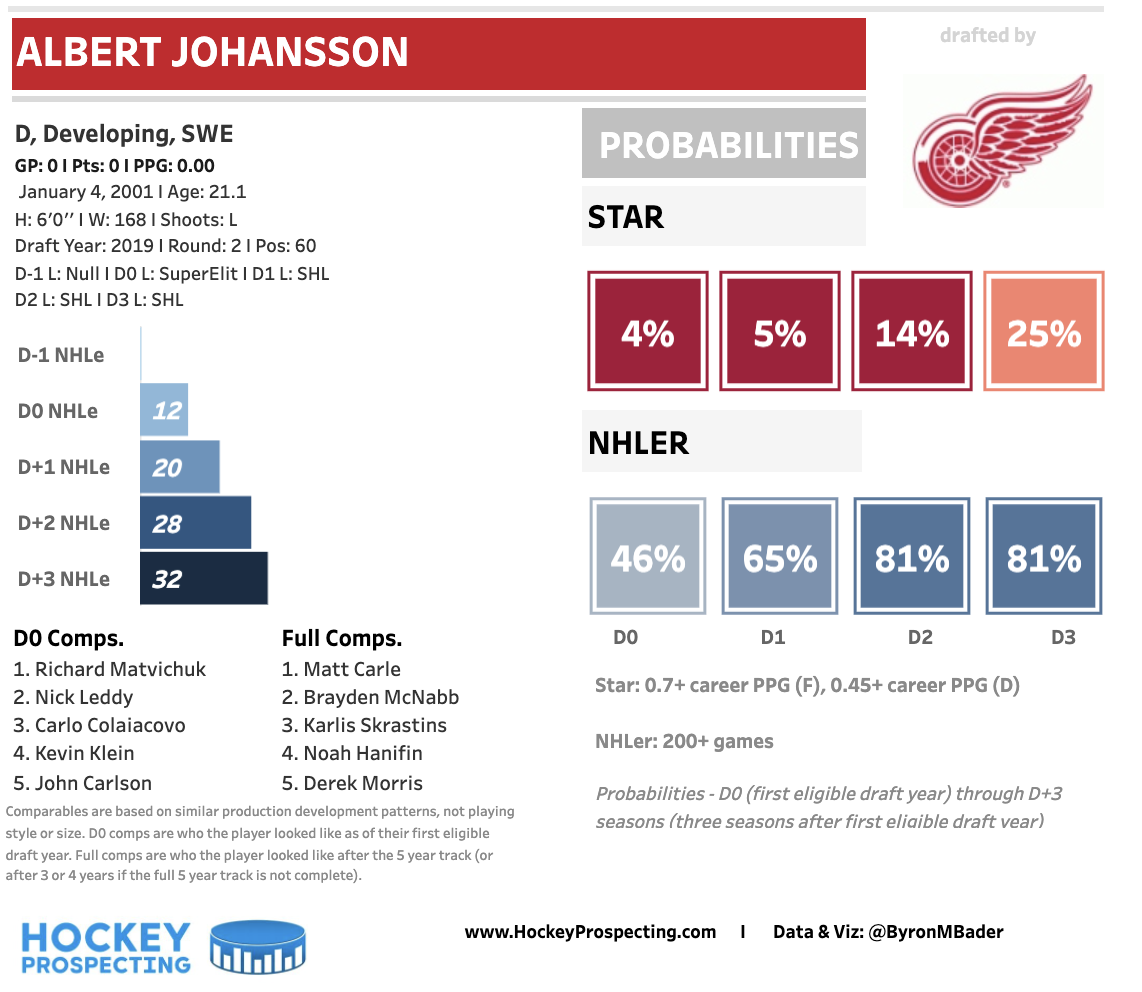
One of the more unheralded moves at the 2019 deadline was when the Sharks acquired Jonathan Dahlen for Linus Karlsson from the Vancouver Canucks. Karlsson was a 2018 third-round pick who is now playing in the Swedish Hockey League (SHL) and putting up nearly a point per game. It’s unclear whether he will ever make a meaningful impact in the NHL. On the other hand, Dahlen is playing in the NHL and started the 2021-22 season as a Calder Trophy candidate.

Ulf Dahlen is Jonathan’s father, and he played parts of four seasons for the Sharks between 1994-97. He influenced his friend and Sharks’ general manager Doug Wilson, who traded for the younger Dahlen. Though the sample size isn’t huge yet, Dahlen appears to be an NHL-caliber player. Though his defense could use some work, as evidenced by his expected goals against per 60 minutes (xGA/60) and Corsi against per 60 minutes (CA/60) according to Evolving Hockey, which is far below NHL average. His offensive metrics, on the other hand, particularly on the power play of expected goals for per 60 minutes (xGF/60) and Corsi for per 60 minutes (CF/60), are well above average.
2018 – Sharks Add Kane
In 2017-18, the Sharks were two seasons removed from their only Stanley Cup Final appearance. Hoping to make another long playoff run, they made one of the biggest splashes at the 2018 Trade Deadline landing Evander Kane from the Buffalo Sabres for a 2019 first-round pick (Brayden Tracey) and a 2019 fourth-round pick (Ethan Keppen). The return for the Sabres was impressive, considering Kane already had off-ice issues in his time both with the Winnipeg Jets and Sabres.
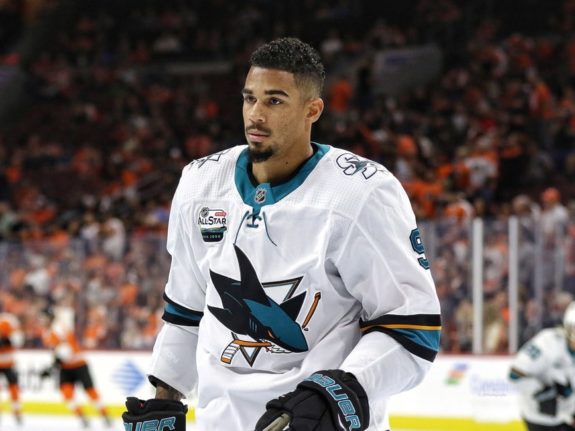
Kane was certainly productive in his time with the Sharks. In the 2017-18 season after the trade, he was nearly a point-per-game player and had five points in nine games as the Sharks lost in the Conference Semifinals. During the 2018-19 and 2019-20 seasons, Kane was a 60-plus point player and finished fifth and third in points per game for forwards those seasons. During the 2020-21 season, when many of the Shark forwards struggled to score, Kane had his best statistical season and had the most points per game of any forward.
Ultimately, the off-ice issues surfaced for Kane in San Jose, and his contract was terminated on Jan. 8, 2022. It remains to be seen what the legal outcome of this is as the NHL Players Association is challenging the action by the Sharks. Either way, Kane’s tenure came to an unceremonious end, and even though the trade wasn’t terrible, the contract the Sharks signed Kane to essentially forced them to move on from Joe Pavelski at the end of 2018-19. Another minor trade at the 2017-18 deadline was when the Sharks acquired the 2018 sixth-round pick that became John Leonard from the Nashville Predators for Brandon Bollig and Troy Grosenick.
2017 – Sharks Add Hansen
After their sole Stanley Cup Final appearance, the Sharks acquired Jannik Hansen with 20 percent salary retained from the Canucks for a 2017 fourth-round pick (Tim Soderlund). Hansen had seven points in the final 15 regular-season games after the deadline and then just one point in six playoff games as the Sharks lost in the first round. Hansen had one more season on his contract at the time of the trade and put up 14 points in 46 games during 2018-19.
Now that I’ve recapped the past five trade deadlines, it’s time to have some fun. I’ll rank the five best and five worst trade deadline deals for the Sharks in their history. They haven’t always been the most active at the trade deadline, but there have been some pretty solid acquisitions and some colossal failures.
Sharks’ 5 Best Trade Deadline Deals (1992-2016)
5) 2004
The 2003-04 season was the seventh-best by total points in Sharks’ franchise history. They won the Pacific Division and were looking to make a deep playoff run. Though they already had Patrick Marleau, Alyn McCauley, and Mike Ricci down the middle, they sought more center depth and thus acquired Curtis Brown and Andy Delmore (flipped for future considerations) for Jeff Jillson, one of their worst all-time draft picks, and 2005 ninth-round pick in a deal with the Sabres.
Brown wasn’t expected to provide points, and he didn’t, but he was a strong defensive presence that made the team more difficult to play against. He could match-up against the more skilled forwards from the other teams, allowing Marleau and Ricci to generate more offense. In the end, it helped. After missing the playoffs in the 2002-03 season, the Sharks made it to the Western Conference Final, where they lost in six games to the Calgary Flames.
4) 2008
The 2007-08 season was the fourth best point total for the Sharks in their history. They were a perennial contender by this point and were looking to put themselves over the hump. Their defenders, though decent, lacked offensive flare, and so the trade for offensively skilled Brian Campbell was made with the Sabres for a 2008 first-round pick that ended up being Tyler Ennis.
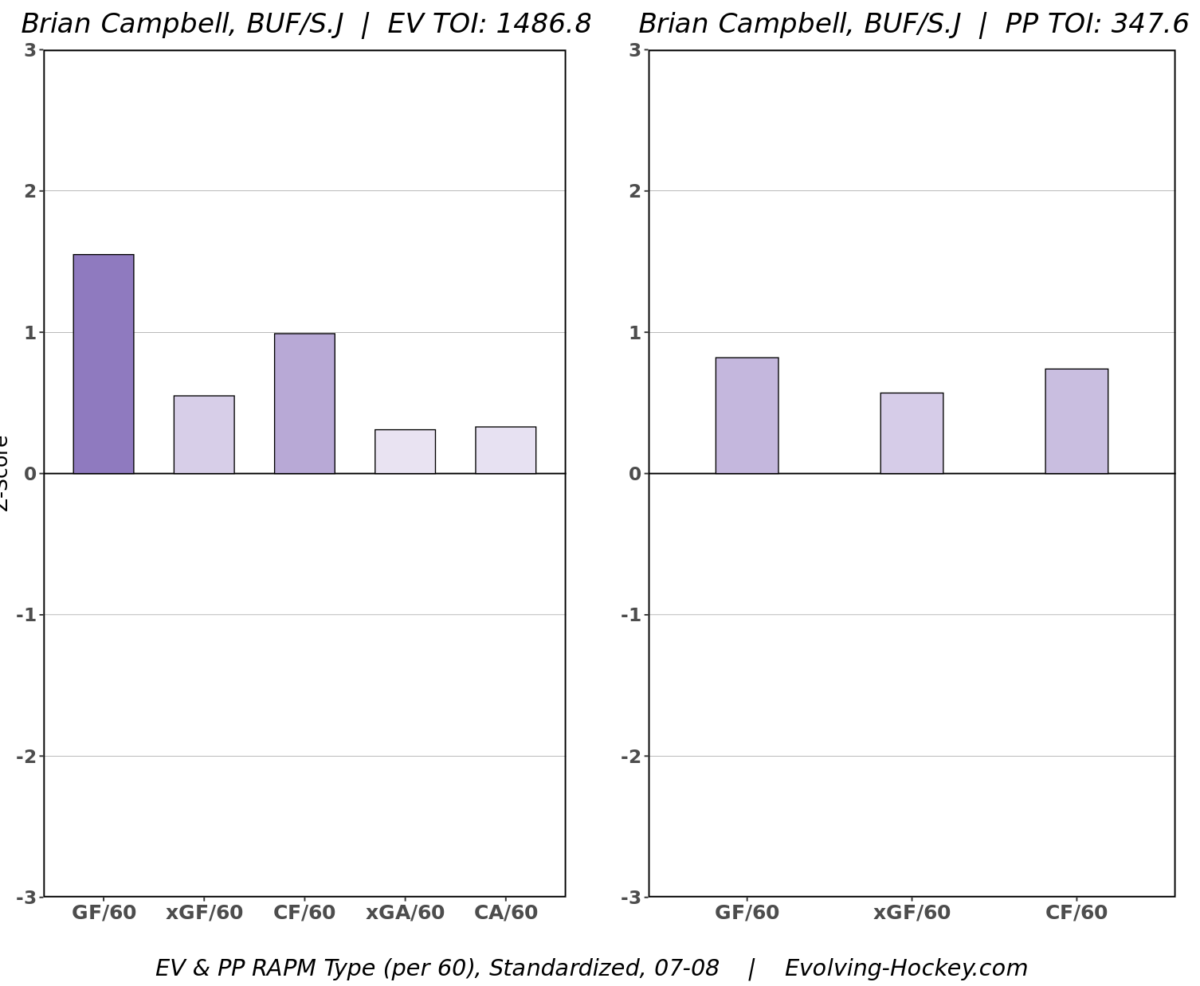
Campbell was awesome for the Sharks. He put up nearly a point per game during the 20 regular-season games he played for the team and seven points in 13 playoff games. Ennis is certainly a good player in the NHL and has had various amounts of success. From a points perspective, his most successful season was 2014-15, where he scored 46 points in 78 games. If the Sharks had either won the Cup or signed Campbell to an extension, this would have been a slam dunk, amazing trade. It was still a good trade that could have worked out without those caveats, but it doesn’t look quite as good to lose a valuable NHL player like Ennis.
3) 1999
The 1998-99 Sharks were certainly not a powerhouse, but they were coming off a fourth-place Pacific Division finish after back-to-back seventh-place finishes. The success they were finding could use a boost, and that is what they accomplished by landing a then 32-year-old Vincent Damphousse from the Montreal Canadiens for a 1999 fifth-round pick and 2000 conditional pick. Damphousse was an elite point producer in his younger seasons with both the Maple Leafs and Canadiens, but he proved that he still had some gas in the tank in his time with the Sharks.
After joining the Sharks for the remainder of the 1998-99 season, he put up 13 points in the remaining 12 regular-season games and another five points in the six playoff games the Sharks played. It wasn’t his fault they couldn’t beat the Colorado Avalanche in the first round. In the 1999-00 season, Damphousse put up 70 points in 82 games, which was a much better pace than his last two in Montreal. Age-related decline seemed to catch up to him with two seasons in the 40-point range, but he did get above 50 and 60 once more each. Considering the low cost to acquire Damphousse, the fact that he was an assistant captain in San Jose, and continued to put up points, this was a very shrewd move that paid off well beyond the season in which he first joined the Sharks.
2) 1992
The Sharks acquired Johan Garpenlov from Detroit for Bob McGill and an eighth-round pick in 1992. In his two full seasons with the Sharks, 1992-93 and 1993-94, Garpenlov finished second and sixth in points, respectively. During the 1993-94 season, the Sharks qualified for the playoffs for the first time in team history. Garpenlov was fantastic, scoring 10 points in 14 games as the Sharks upset the Red Wings before bowing out to the Maple Leafs. I don’t think the Sharks win their first-ever playoff series and create one of the biggest playoff upsets in NHL history without the services of Garpenlov.
1) 2016
While these may not be the most exciting names, what followed the 2016 Trade Deadline was the best postseason run in team history. Surely, they must have acquired an elite scoring winger or a top-pairing defender, right? Nope. The Sharks acquired backup goaltender James Reimer, gritty defender Roman Polak, and depth forward Nick Spaling.
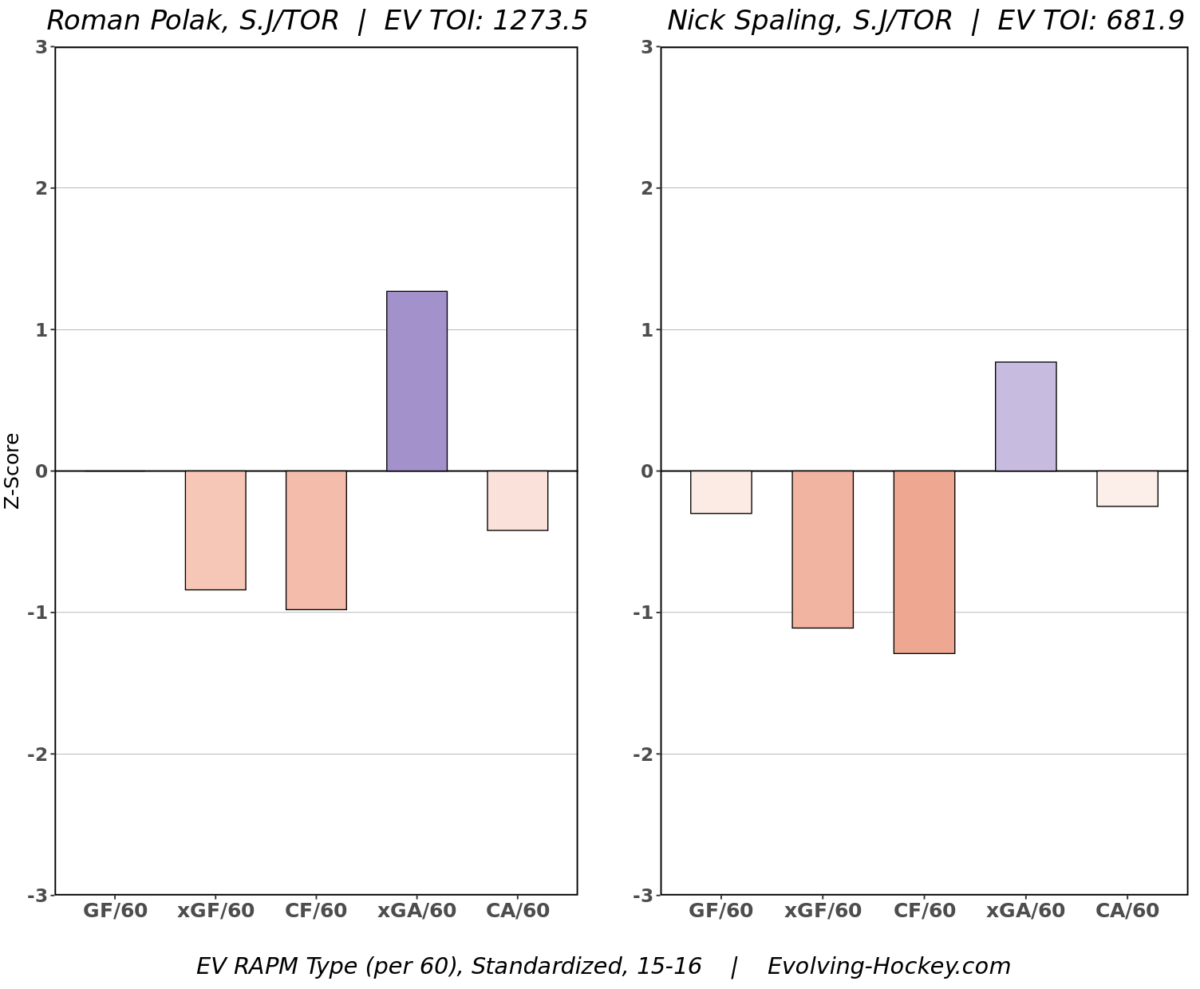
Reimer didn’t see a lot of action, but his eight appearances in the regular season saw him post a 1.62 GAA and .938 SV%. This allowed the Sharks to rest starter Martin Jones a bit down the stretch and gave them confidence in their goalies heading into the postseason. Polak and Spaling didn’t contribute a lot of offense, but that wasn’t their role. Their role was to reinforce the defensive end of the ice and offload some of the tough matchups so the rest of the team could generate more scoring chances. It worked until the Sharks met the Pittsburgh Penguins in the Stanley Cup Final, and the dream of lifting the Cup for team teal ended in tears.
Sharks’ 5 Worst Trade Deadline Deals (1992-2016)
5) 2015
This first one isn’t so bad; it’s one of those moments where you can be happy for the former Sharks as they won the Cup. At the 2015 Trade Deadline, the Sharks traded Andrew Desjardin to the Blackhawks for Ben Smith. The Blackhawks won their third Cup in six years. Smith had five points in 19 games to close out the 2014-15 season, and the Sharks failed to qualify for the playoffs. He did stick around the following season but only played six games before being demoted to the AHL and eventually traded to the Maple Leafs.
In that trade, the Sharks did get a conditional seventh-round pick in 2017, which turned out to be Ivan Chekhovich. He exceeded expectations as a late draft pick, appearing in four NHL games. Ultimately, Chekhovich was unhappy with the lack of opportunity to play in the NHL, so he requested a contract termination to return to Russia. He’s now in his second season for Torpedo Nizhny Novgorod and is over a half-point per game in his time with them.
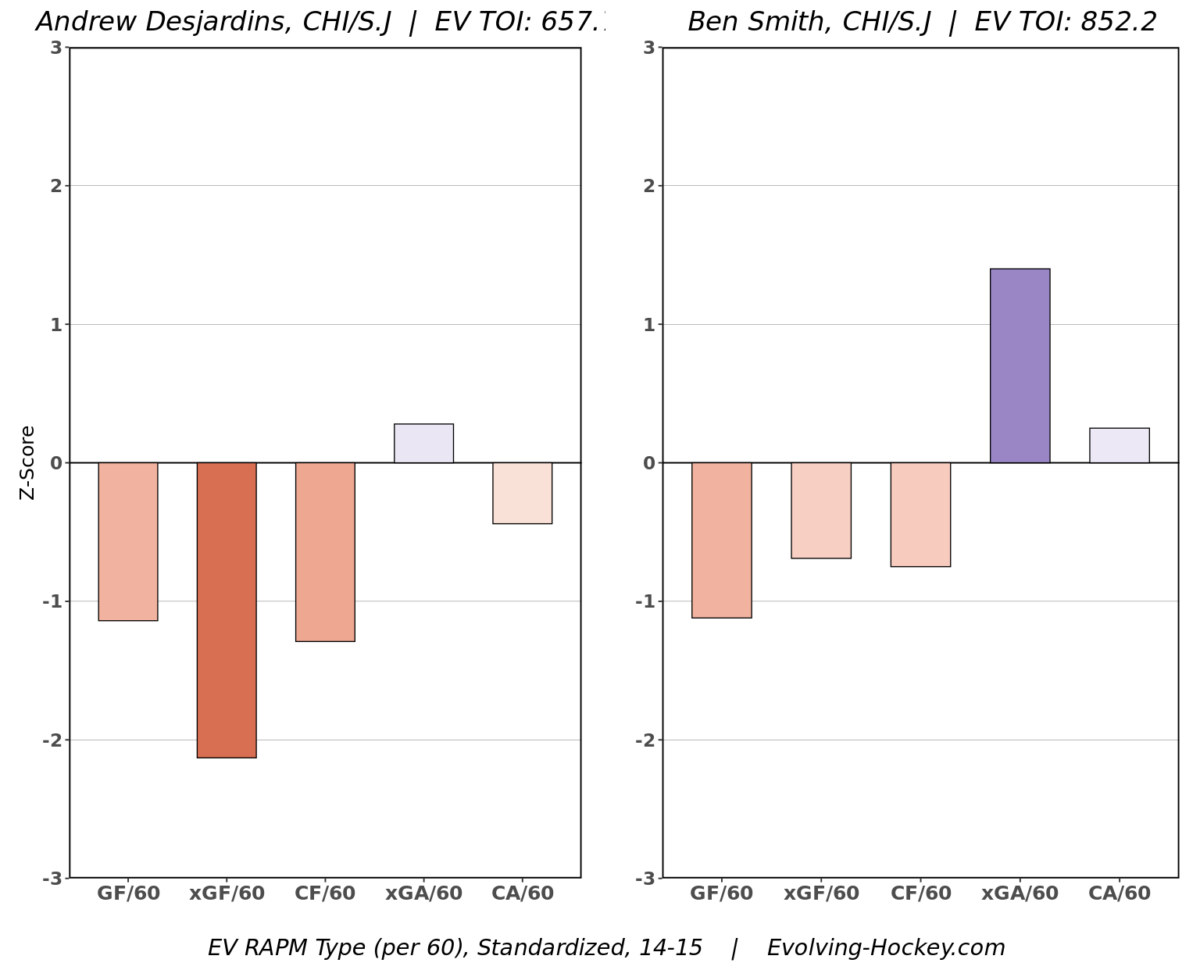
Desjardin was a role player and someone the Blackhawks needed more than the Sharks. It was nice to see him win the Cup, though I wonder how the Sharks’ 2015-16 season would have been with his strong defensive presence and physicality. Perhaps it wouldn’t have made a difference. The Sharks were without either player for the 2015-16 run to the Cup Final, and in that time, Smith had nine points in 15 playoff games for the Maple Leafs.
4) 2009
The 2008-09 regular season was the best performance in franchise history. With 117 points, they won the Presidents’ Trophy and were clearly a Cup contender. They wanted to add depth at the trade deadline, so they looked south to two members of the 2007 Cup-winning Anaheim Ducks, Travis Moen and Kent Huskins. Not a bad idea in theory, but the two never seemed to fully acclimate to their new team.
In a sad form of poetic justice, the Sharks were ousted in the first round of the playoffs by none other than the eighth-seeded Ducks. To make matters worse, Nick Bonino was the main asset that went back to the Ducks in the trade. Bonino didn’t join the Ducks for two more seasons, and he was eventually traded. What really stings for the Sharks is that in their 2016 Stanley Cup Final appearance, it was none other than Bonino who helped lead the Penguins past the Sharks. His iconic third-period goal in Game 1 knocked the wind out of the sails of the Sharks, who outplayed the Penguins in that game.
3) 2001
Teemu Selanne scored a lot of goals against the Sharks in his career, so one could understand the appeal of trading for a player that had hurt them so often in the past. There were two problems with this trade, though. First, Selanne never really seemed to fit in well with the Sharks, and secondly, it’s who they traded to get him.
Selanne had 131 points in 176 games for the Sharks, good for .74 points per game. Not a bad contribution, but for a player of his caliber who had over a point-per-game season several times before and after his tenure with the Sharks, this number is underwhelming. The team didn’t do so well with him either, other than the 2001-02 season when they won the Pacific Division only to lose in the second round to the Avalanche — the other two seasons, they either lost in the first round (2000-01) or didn’t qualify for the playoffs (2002-03).
The other issue with this trade is that it involved fan-favorite Jeff Friesen as well as serviceable backup goalie Steve Shields and a 2003 second-round pick that ended up being Vojtech Polak. Certainly, the latter two weren’t sorely missed, but Friesen surely was. He was a 1994 first-round pick for the Sharks (11th overall) and was a staple in their lineup beginning in the 1994-95 season. The 2000-01 season was his seventh with the club, and he was in a bit of a slump. Friesen is yet another Shark who moved on to a new team and won a Cup, in this instance with the New Jersey Devils in 2002-03.
2) 2007
The 2007 Trade Deadline was full of colossal failures by the Sharks. In two separate transactions, the team traded away first-round picks that became Max Pacioretty and David Perron. Both players are still top players for their respective clubs, and the pieces they got back are long gone. For the pick that became Pacioretty, the Sharks acquired Craig Rivet and gave Josh Gorges to the Canadiens. The Sharks gave Ville Nieminen and Jay Barribal with the pick that became Perron to the Blues for Bill Guerin.
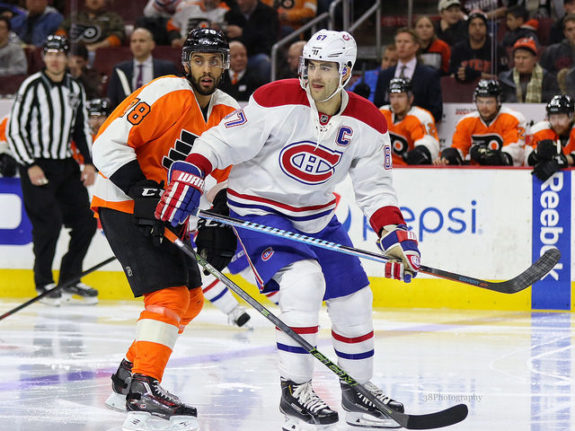
Sure, Guerin and Rivet could have led the Sharks to the Cup, and maybe this story would end differently, but it doesn’t. The Sharks lost in the second round to the Red Wings in the 2006-07 season. Guerin scored nine points in 16 regular-season games for the Sharks and added two helpers in nine playoff games. In the offseason, Guerin signed with the New York Islanders.
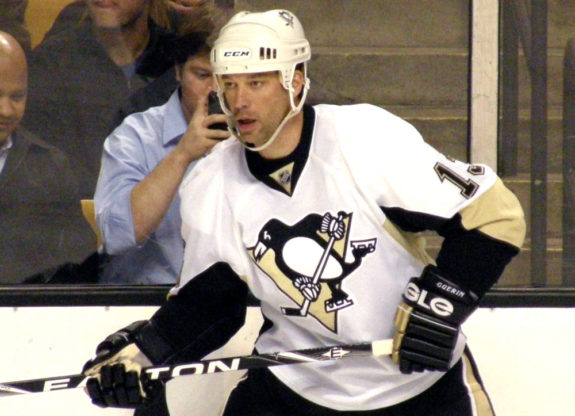
Rivet had eight points in 17 regular-season games and another five in 11 playoff games — decent production for a defensive defenseman. In the offseason, the Sharks signed Rivet to a four-year, $3.5 million per year deal. After the 2007-08 season, the Sharks traded Rivet to the Sabres for a couple of picks that didn’t amount to much. In the end, the Sharks ended up with a whole lot of nothing when they could have had Pacioretty and Perron.
1) 1998
The 1998 Trade Deadline deal absolutely takes the cake for the worst in franchise history. After two straight seasons of missing the playoffs, the Sharks were competitive again in the 1997-98 season. Ready to push their chips in, they traded Andrei Nazarov to the Lightning for Bryan Marchment and David Shaw, along with a draft condition. The Sharks already had the Florida Panthers’ first-round pick from a previous transaction involving Viktor Kozlov, and since the Lightning was one of the worst teams that season, they wanted to ensure they got the best draft pick. They smartly added a condition that allowed them to swap picks with the Sharks if they won the lottery.
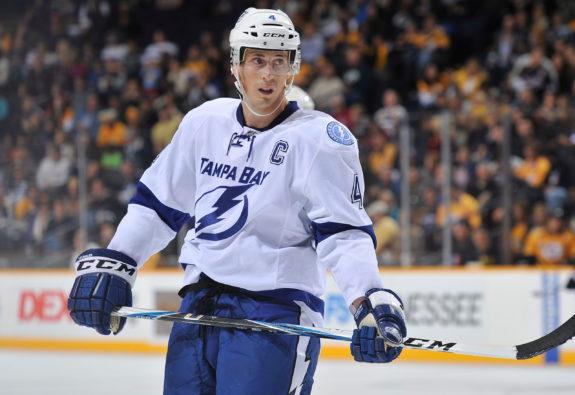
Since the Sharks were eyeing the playoffs, they probably didn’t even think about winning the draft lottery, but wouldn’t you know, for the only time in franchise history, they won the 1998 draft lottery and didn’t get to use the pick. Instead, the Lightning drafted Vincent Lecavalier, instantly transforming their franchise. He helped the Lightning win the 2004 Stanley Cup and was part of the wave of players that built the team the reputation they currently still enjoy. It’s painful, but try to imagine what the Sharks would be like with both Joe Thornton and Lecavalier as their top two centers. That is the kind of lineup that Stanley Cup champions are made of.
Like most teams, the Sharks have been various degrees of active at the trade deadline. In the last 20 years, it’s been common that they were looking to add a piece or two to push them over the top and help them win a Cup. In those years, there were some massive blunders like missing out on Lecavalier, Pacioretty, and Perron and giving up Bonino and Friesen. They have also acquired great players like Damphousse, Garpenlov, and Dahlen. It remains to be seen what future trade deadlines will bring, but I imagine it will continue to be a mixed bag.
